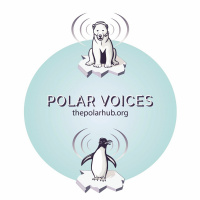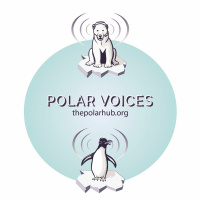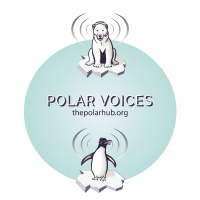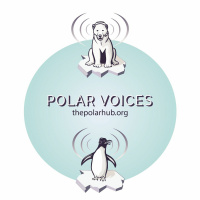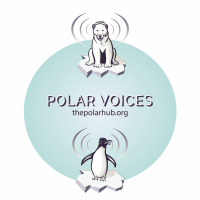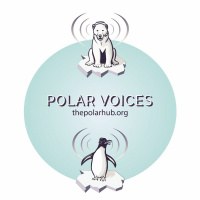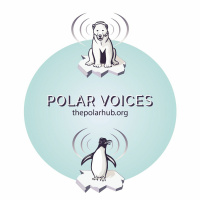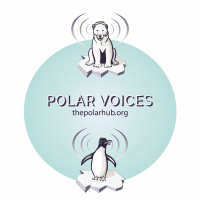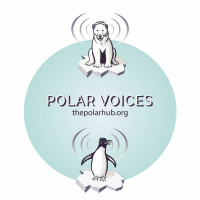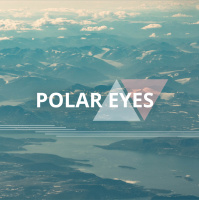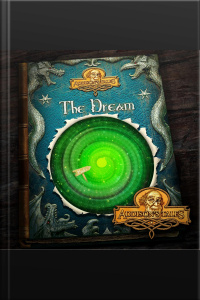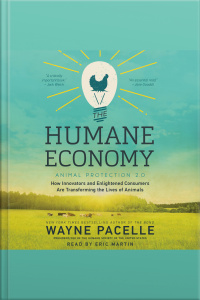Informações:
Sinopse
Everyone is talking about climate change, but what does it all mean? Listen in as PoLAR Voices breaks down the science of climate change with people living and working in the polar regions.
Episódios
-
Episode 12 - Arctic Connection: Community Collaborations in Research
06/12/2016 Duração: 08minArctic inhabitants are taking research into their own hands. Rather than letting scientists determine what needs to be studied, Inuit communities in Canada are determining what questions they need answered and seeking researchers who can help them.
-
Episode 11 - Vulnerable Coasts
06/12/2016 Duração: 09minCoastlines everywhere are hit by waves and storms from rising seas that can eat away at the shoreline, but Arctic coasts once frozen in place by permafrost are especially susceptible to coastal erosion as temperatures rise and permafrost thaws. Increased erosion is threatening some coastal communities, forcing long-standing communities to consider relocation as the land underneath them disappears.
-
Episode 10 - The Disappearing Frozen Ocean
06/12/2016 Duração: 10minSea ice is rapidly decreasing due to accelerated warming in the Arctic. Animals, subsistence hunters, and researchers who rely on the frozen surface are adapting to less ice while trying to preserve their livelihoods.
-
Episode 9 - How Yukon glaciers are responding to climate change
03/10/2016 Duração: 09minMany glaciers in the Kluane Region are fed by a massive reservoir of snow and ice that sits on top of the St. Elias Mountains. Glaciologists are studying how global warming is affecting the physical characteristics and behavior of these glaciers as they retreat further up mountain slopes.
-
Episode 8 - Warm, thaw, repeat: how the degradation of permafrost will amplify climate change
03/10/2016 Duração: 09minFrozen soils (or permafrost) in the Arctic are thawing, destabilizing the ground surface and damaging buildings and roads. Although infrastructure is crumbling, scientists are more concerned with the potential for runaway global warming as preserved plant material in the soils starts to break down into carbon dioxide. Global climate action plans are in place to limit global warming to 2⁰C, but the huge volume of carbon stored in the soils may push us past that target.
-
Episode 7- Upwards and northwards: tree line advancement in the alpine, subarctic and Arctic
03/10/2016 Duração: 08minAs the Arctic warms, the limits of where trees can grow are slowly shifting up mountains and further north. Researchers at the Kluane Lake Research Station in Yukon, Canada are trying to determine the range of environmental conditions that control the position of the tree line and ultimately forecast the position of the tree line in the future.
-
Per6.- HSwanson
15/04/2016 Duração: 16minDr. Heidi Swanson is an assistant professor and university research chair at the University of Waterloo in Ontario, Canada. She studies the response of aquatic food webs to climate change and the accumulation of mercury in Arctic lakes. Her lab, the Swanson Lab Group, travels to ecosystems as far west as the North Slope in Alaska and as far east as Lake Superior to study fish ecology and track contaminants in lakes. Her team works collaboratively with other academics, government researchers, Aboriginal communities, and industry to conduct meaningful research for multiple stakeholders.
-
Per6.- SCGerlach
15/04/2016 Duração: 13minDr. Craig Gerlach is the Academic Coordinator for Sustainability at the University of Calgary and a professor in the Department of Anthropology and Archaeology. Prior to joining the University of Calgary, Gerlach spent twenty years as a professor at the University of Alaska Fairbanks where he conducted research on food systems in northern aboriginal communities including the sustainability of fisheries and the socioeconomic impact of oil and gas development. His current research focuses on sustainable food, water, and energy systems in remote northern villages and emphasizes meaningful results for stakeholders. As a result, Gerlach is looking at solutions that will reduce rural village dependence on large urban centers including community gardens, greenhouses, alternative energy sources, water infrastructure, housing and shelter, and novel rural community designs. http://anth.ucalgary.ca/profiles/1-4584890
-
Per6.- NKassi2
15/04/2016 Duração: 11minNorma Kassi is co-founder and Director of Indigenous Collaboration at the Arctic Institute of Community-Based Research. Over the last 30 years, she has worked on issues related to contaminants, food security, climate change, wildlife protection, youth engagement and building community capacity. Kassi is Vuntut Gwitchin, which means People of the Lakes. Her understanding of traditional, scientific and ecological knowledge, passed on from Elders, has fostered a deep connection to the land and made her an advocate for the Gwitchin people. From 1985-1992, she served as a Member for Vuntut Gwitchin in Yukon's Legislative Assembly and was selected by the Elders to be a spokesperson for the preservation of the Porcupine Caribou Herd. She has received many awards including the National Wildlife Federation's Conservation and Achievement Award in 1991 and the Goldman Prize for conservation in 2002.
-
Per6.- NKassi1
15/04/2016 Duração: 17minNorma Kassi is co-founder and Director of Indigenous Collaboration at the Arctic Institute of Community-Based Research. Over the last 30 years, she has worked on issues related to contaminants, food security, climate change, wildlife protection, youth engagement and building community capacity. Kassi is Vuntut Gwitchin, which means People of the Lakes. Her understanding of traditional, scientific and ecological knowledge, passed on from Elders, has fostered a deep connection to the land and made her an advocate for the Gwitchin people. From 1985-1992, she served as a Member for Vuntut Gwitchin in Yukon's Legislative Assembly and was selected by the Elders to be a spokesperson for the preservation of the Porcupine Caribou Herd. She has received many awards including the National Wildlife Federation's Conservation and Achievement Award in 1991 and the Goldman Prize for conservation in 2002.
-
Per5.- TSchuur3
15/04/2016 Duração: 11minDr. Ted Schuur is currently a professor of ecosystem ecology at Northern Arizona University and oversees the Ecosystem Dynamics Research Lab. While Polar Voices was conducting interviews, the Schuur lab was located at the University of Florida but has since moved to Northern Arizona University as part of the Center for Ecosystem Science and Society. The lab supports many graduate students and postdoctoral fellows. Marguerite Mauritz is a postdoctoral research associate in the lab studying potential changes in the carbon cycle as permafrost thaws. Elizabeth Webb worked out of the lab as a graduate student and studied what happens to permafrost in winter near Healy, Alaska, as there is still some microbial decomposition taking place. John Krapek is a former field tech at the site. Jamie Hollingsworth is the site manager of the Bonanza Creek Long-Term Ecological Research Station outside of Fairbanks, Alaska. He also works with the Boreal Ecology Cooperative Research Unit, a partnership between the University of
-
Per5.- TSchuur2
15/04/2016 Duração: 14minDr. Ted Schuur is currently a professor of ecosystem ecology at Northern Arizona University and oversees the Ecosystem Dynamics Research Lab. While Polar Voices was conducting interviews, the Schuur lab was located at the University of Florida but has since moved to Northern Arizona University as part of the Center for Ecosystem Science and Society. The lab supports many graduate students and postdoctoral fellows. Marguerite Mauritz is a postdoctoral research associate in the lab studying potential changes in the carbon cycle as permafrost thaws. Elizabeth Webb worked out of the lab as a graduate student and studied what happens to permafrost in winter near Healy, Alaska, as there is still some microbial decomposition taking place. John Krapek is a former field tech at the site. Jamie Hollingsworth is the site manager of the Bonanza Creek Long-Term Ecological Research Station outside of Fairbanks, Alaska. He also works with the Boreal Ecology Cooperative Research Unit, a partnership between the University of
-
Per5. -TSchuur1
15/04/2016 Duração: 13minDr. Ted Schuur is currently a professor of ecosystem ecology at Northern Arizona University and oversees the Ecosystem Dynamics Research Lab. While Polar Voices was conducting interviews, the Schuur lab was located at the University of Florida but has since moved to Northern Arizona University as part of the Center for Ecosystem Science and Society. The lab supports many graduate students and postdoctoral fellows. Marguerite Mauritz is a postdoctoral research associate in the lab studying potential changes in the carbon cycle as permafrost thaws. Elizabeth Webb worked out of the lab as a graduate student and studied what happens to permafrost in winter near Healy, Alaska, as there is still some microbial decomposition taking place. John Krapek is a former field tech at the site. Jamie Hollingsworth is the site manager of the Bonanza Creek Long-Term Ecological Research Station outside of Fairbanks, Alaska. He also works with the Boreal Ecology Cooperative Research Unit, a partnership between the University of
-
Per5.- MJohansson
15/04/2016 Duração: 10minDr. Margareta Johansson is a researcher in the Department of Physical Geography and Ecosystems Science at Lund University as well as executive secretary at INTERACT—a consortium of circum-Arctic researchers and field stations. She studies permafrost in subarctic Sweden and manipulates snow conditions to determine how the land will respond to changes in climate.
-
Per4.- MFlannigan3
15/04/2016 Duração: 09minDr. Mike Flannigan is a professor with the Department of Renewable Resources at the University of Alberta and the Director of the Western Partnership for Wildland Fire Science located at the University of Alberta. He received his Bachelor of Science in Physics from the University of Manitoba, his Master of Science in Atmospheric Science from Colorado State University, and his Doctorate in Plant Sciences from Cambridge University. After completing Meteorologist course MT35 with Environment Canada, Flannigan worked briefly as a meteorologist. Subsequently, Flannigan worked as a physical scientist, research scientist and senior research scientist with the Canadian Forest Service until he transitioned into his current role. Dr. Flannigan's primary research explores fire and weather/climate interactions including the potential impact of climatic change, lightning-ignited forest fires, landscape fire modelling and interactions between vegetation, fire and weather. He was the Editor-in-Chief of the International Jou


